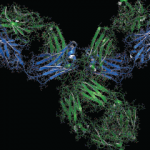Immune checkpoint inhibitors (ICIs), such as anti-programmed cell-death 1/programmed death-ligand 1 (anti-PD-1/PD-L1) or anti-CTL-associated protein (anti-CTLA-4), have dramatically changed the treatment of advanced cancers over the past decade. ICIs block T cell inhibition, thus increasing the anti-tumor immune response. ICIs are used not only for metastatic cancer, but also as adjuvant treatment for some stage…




